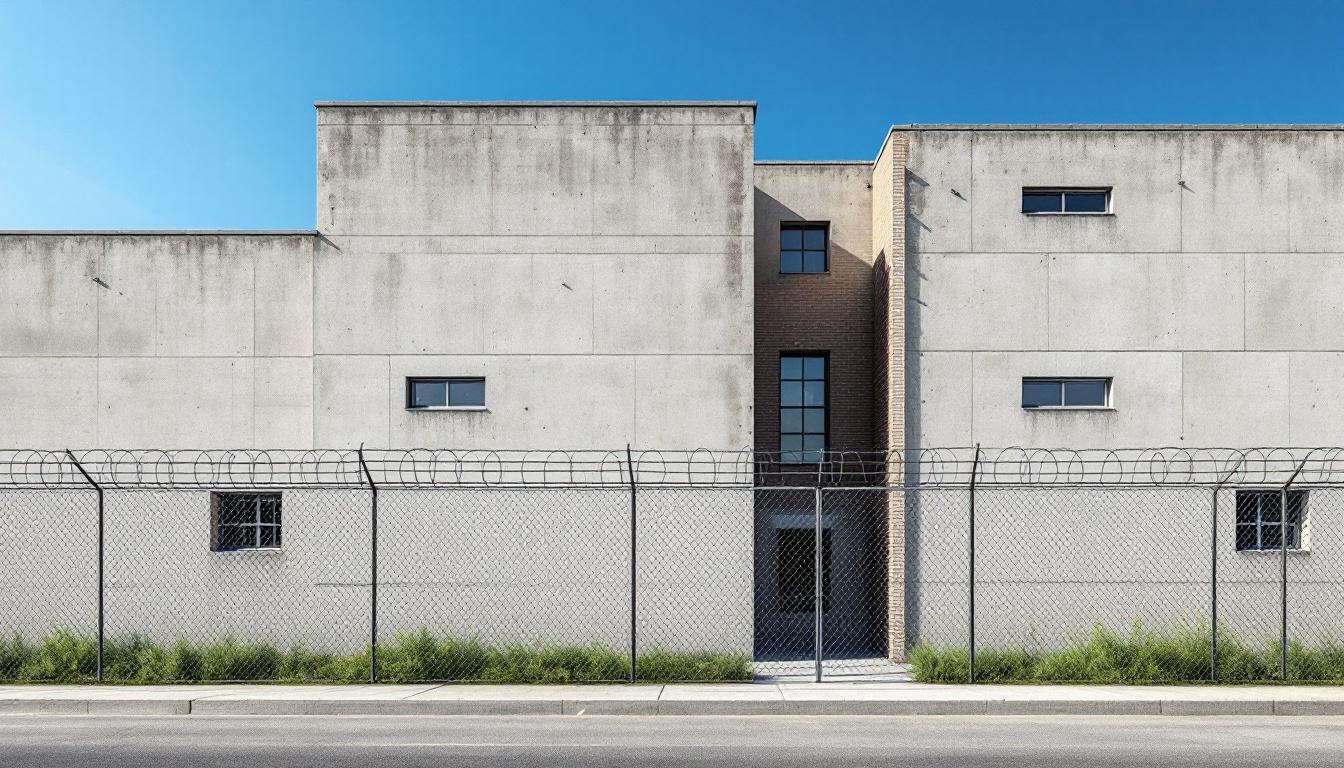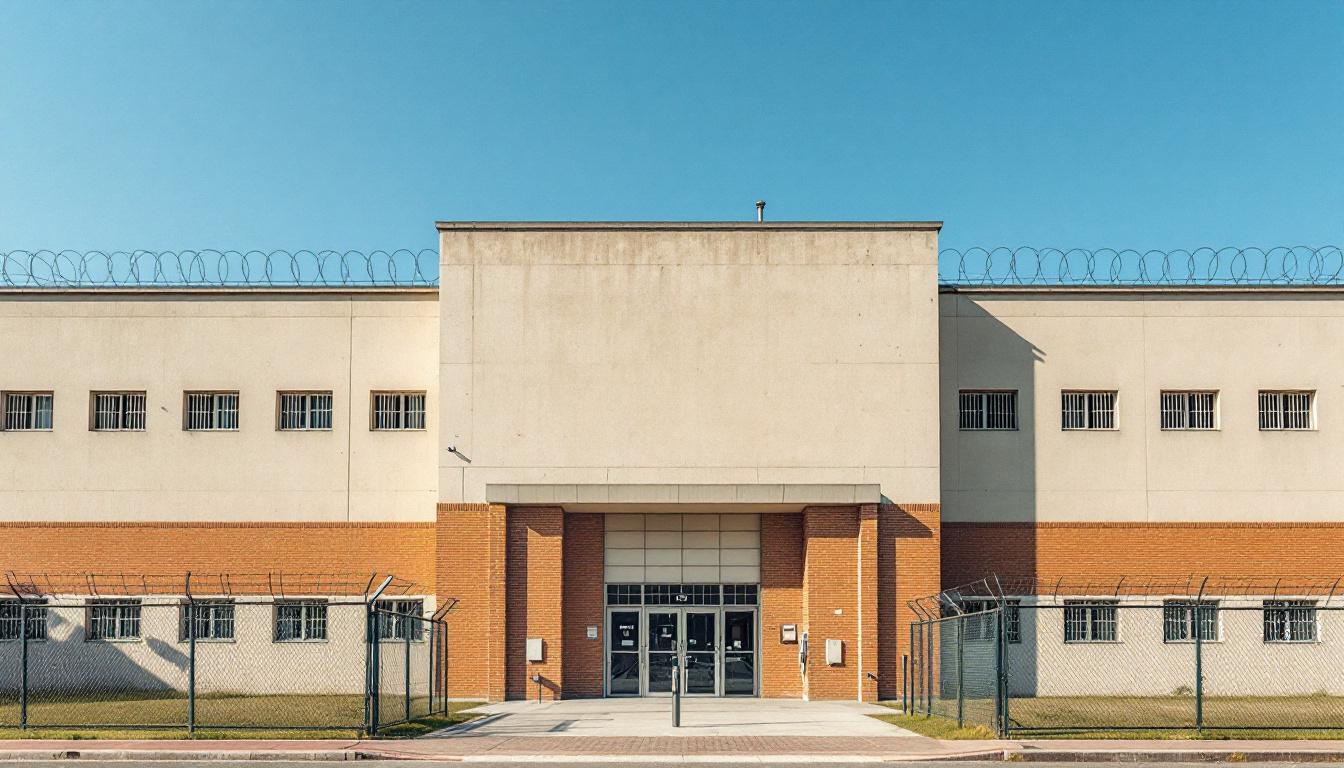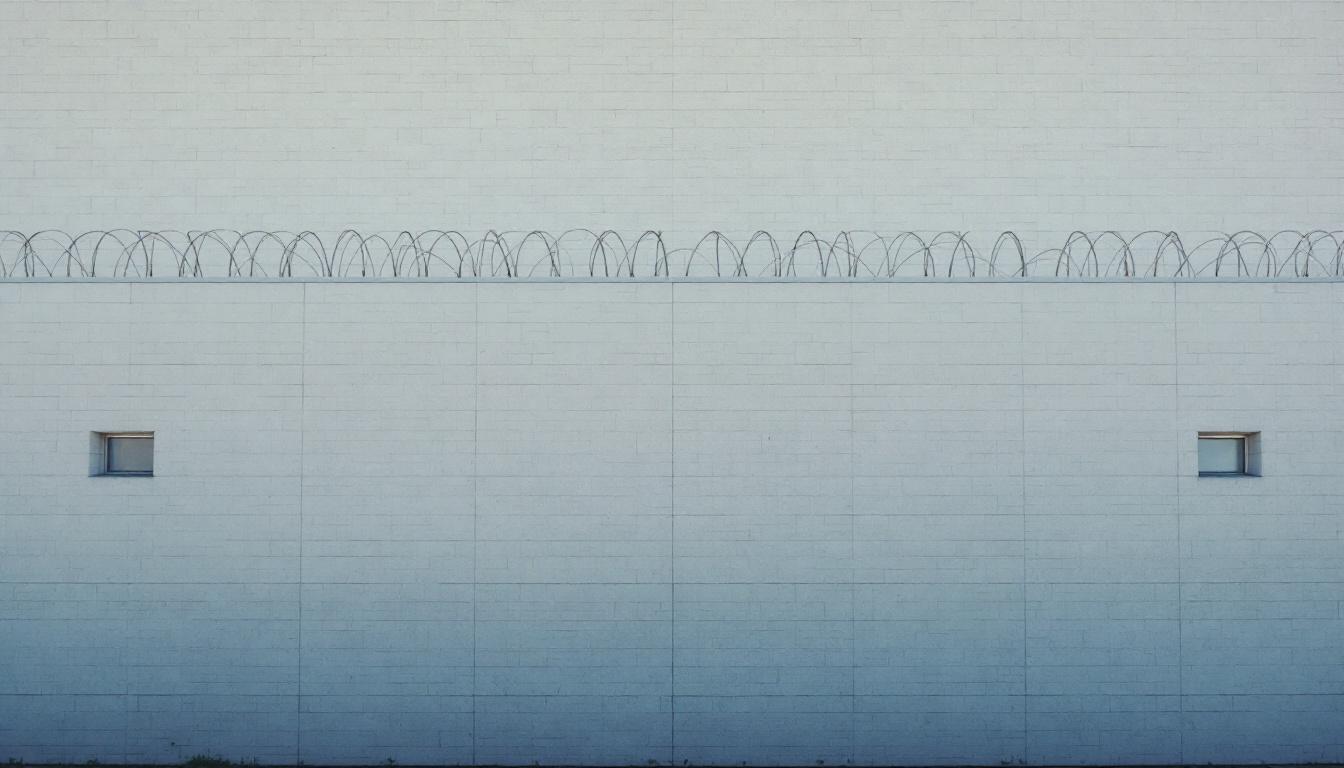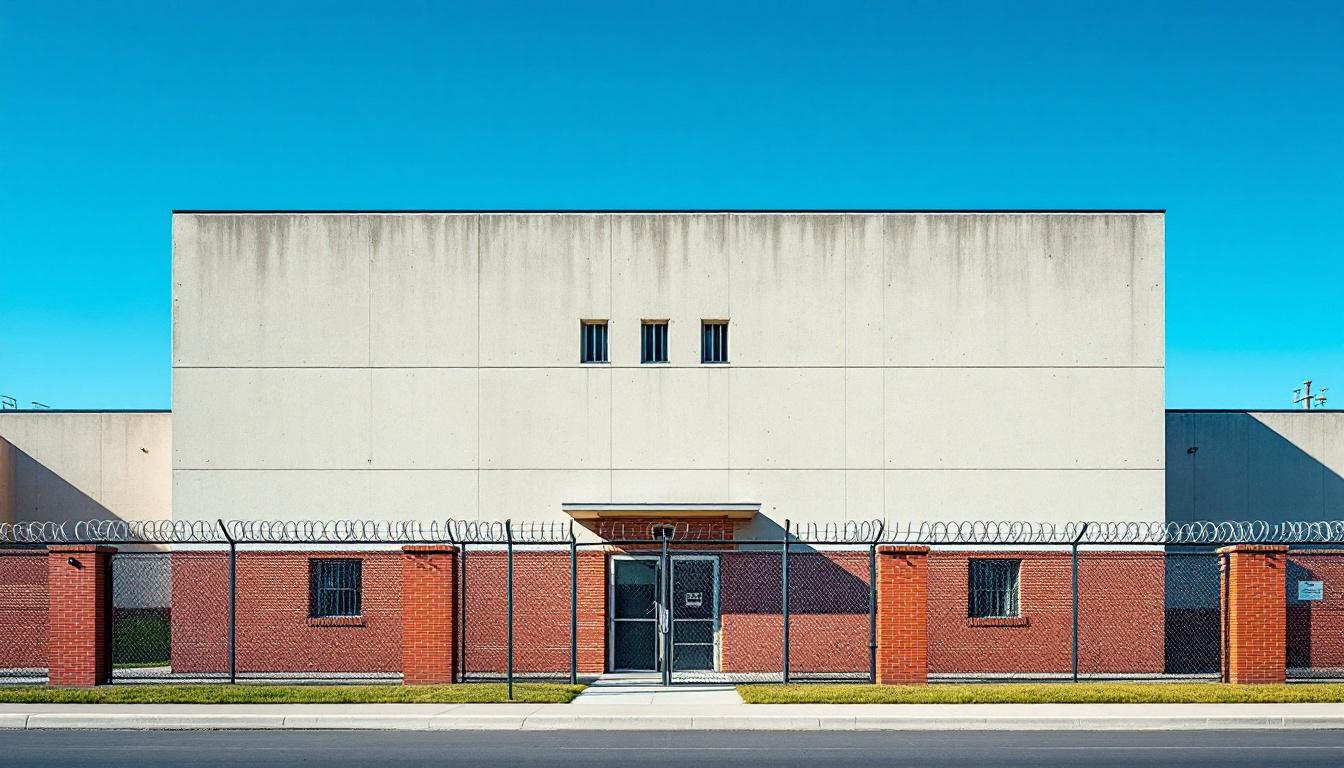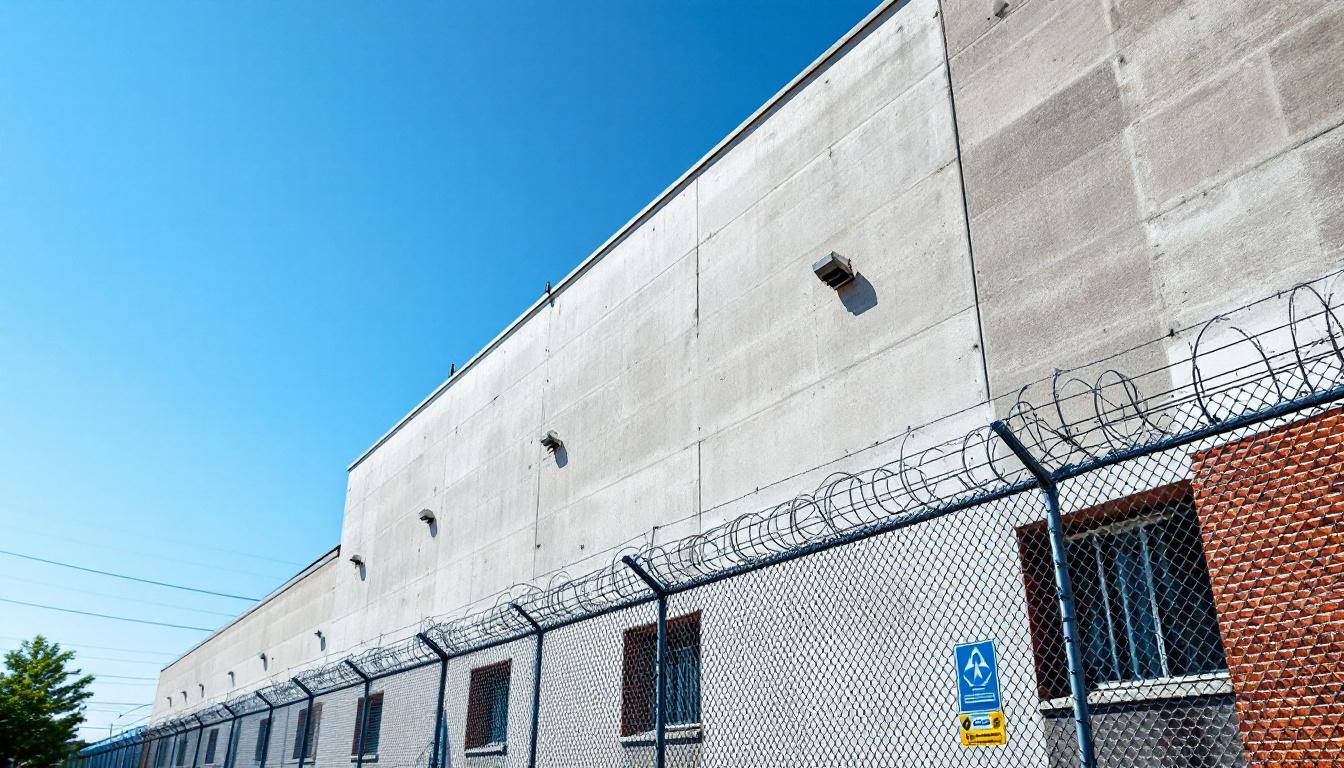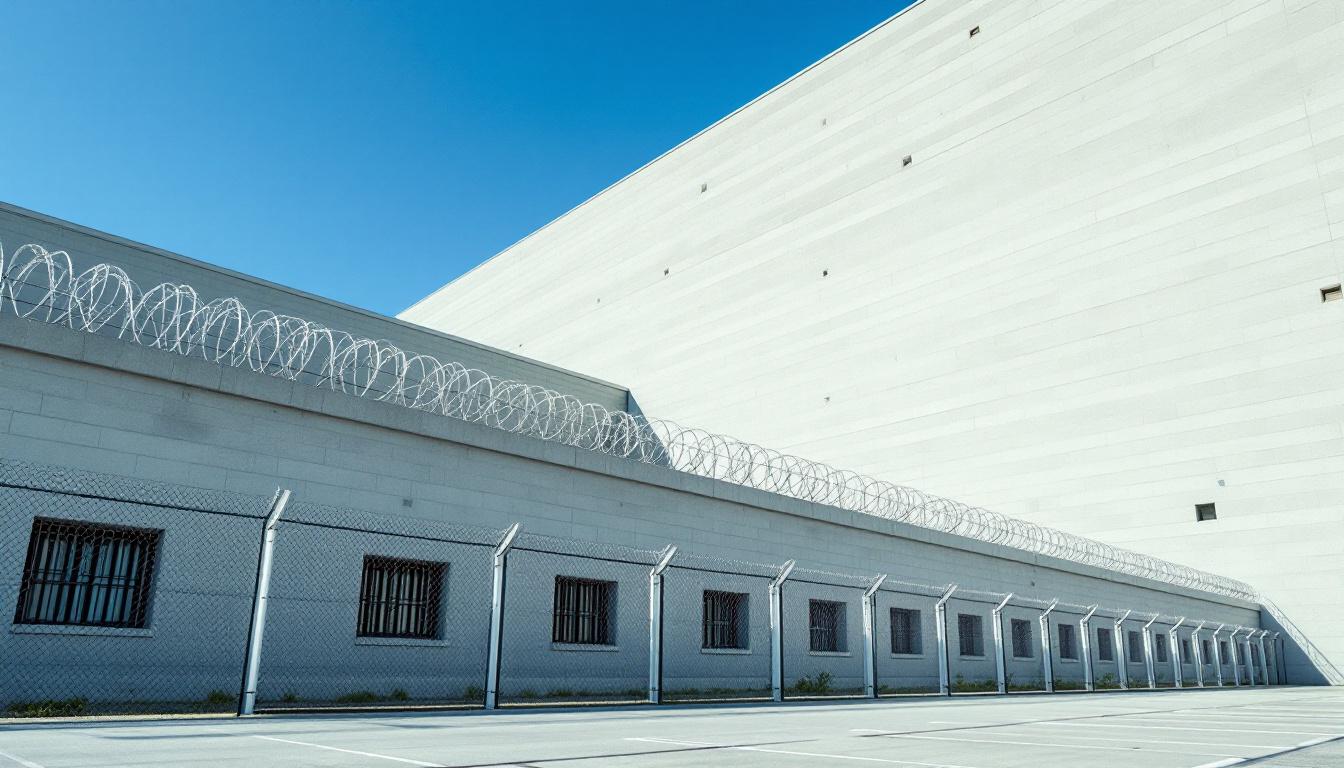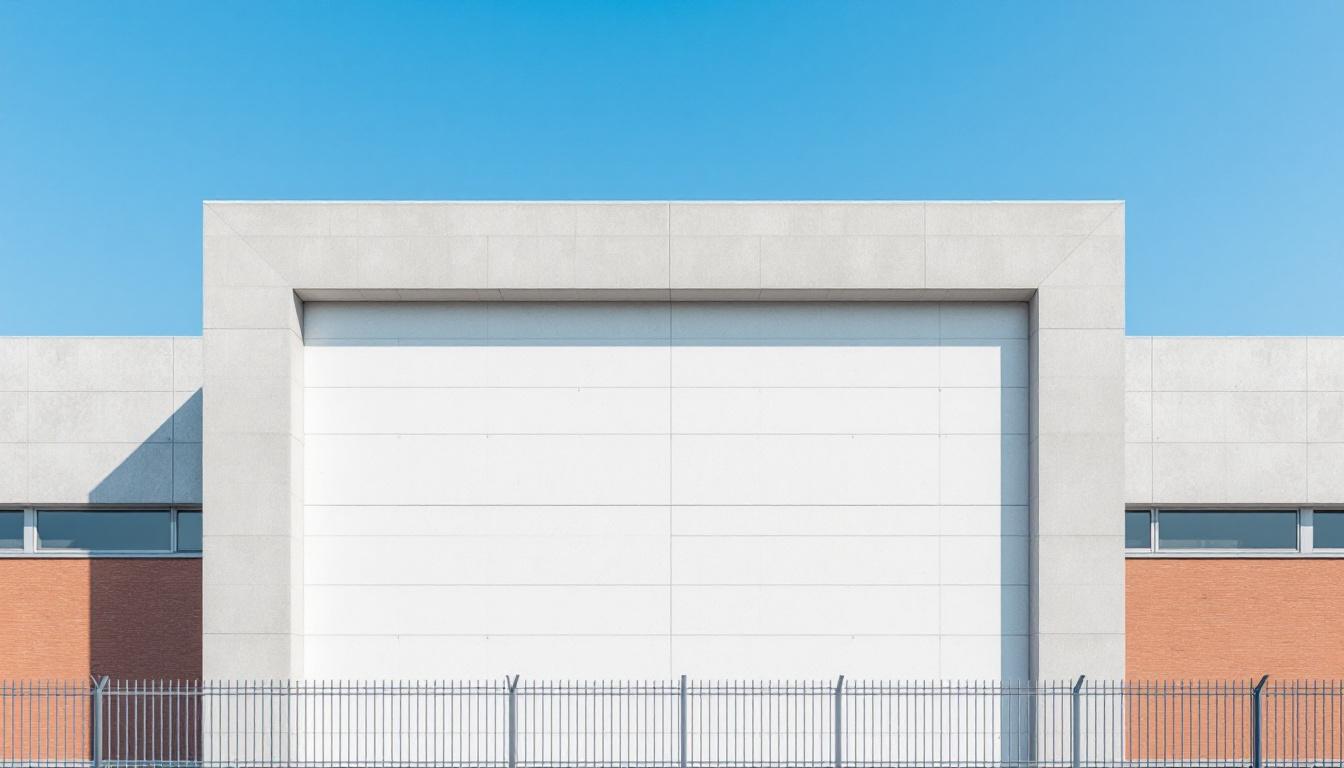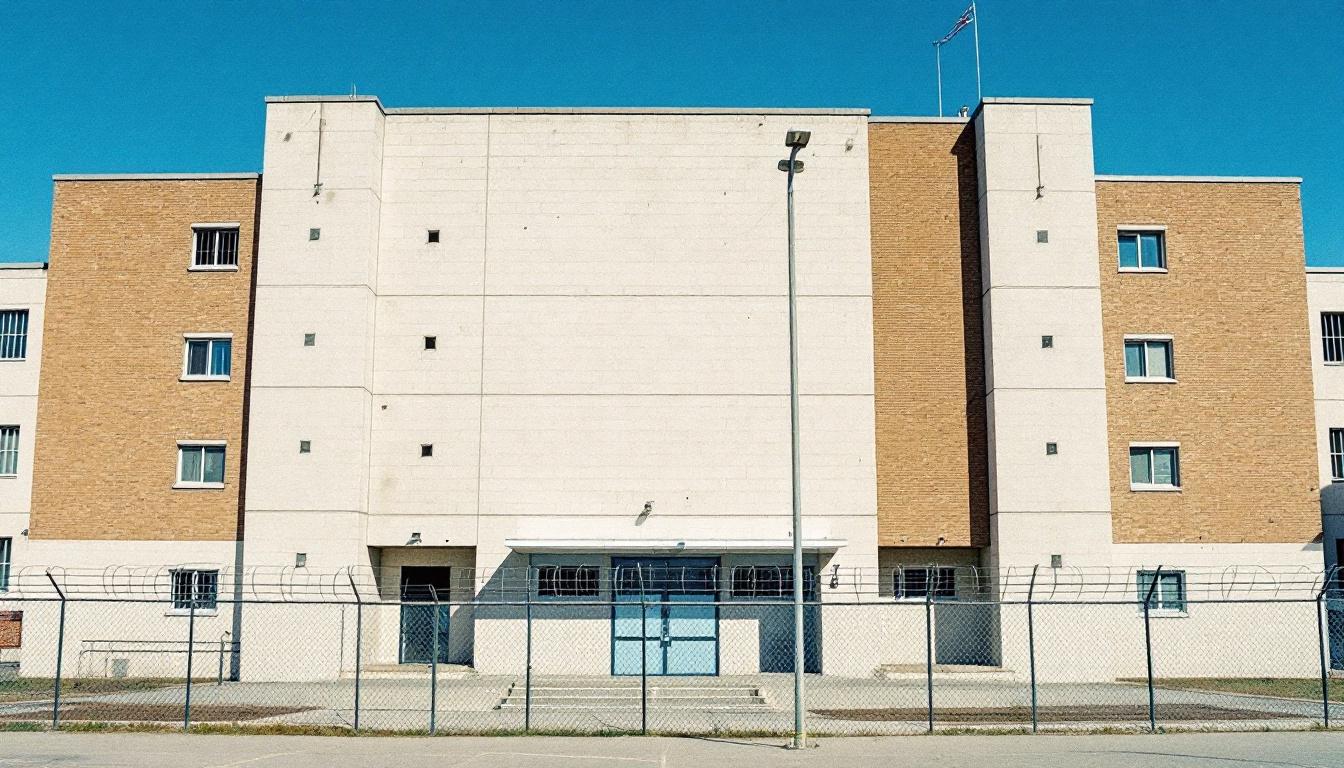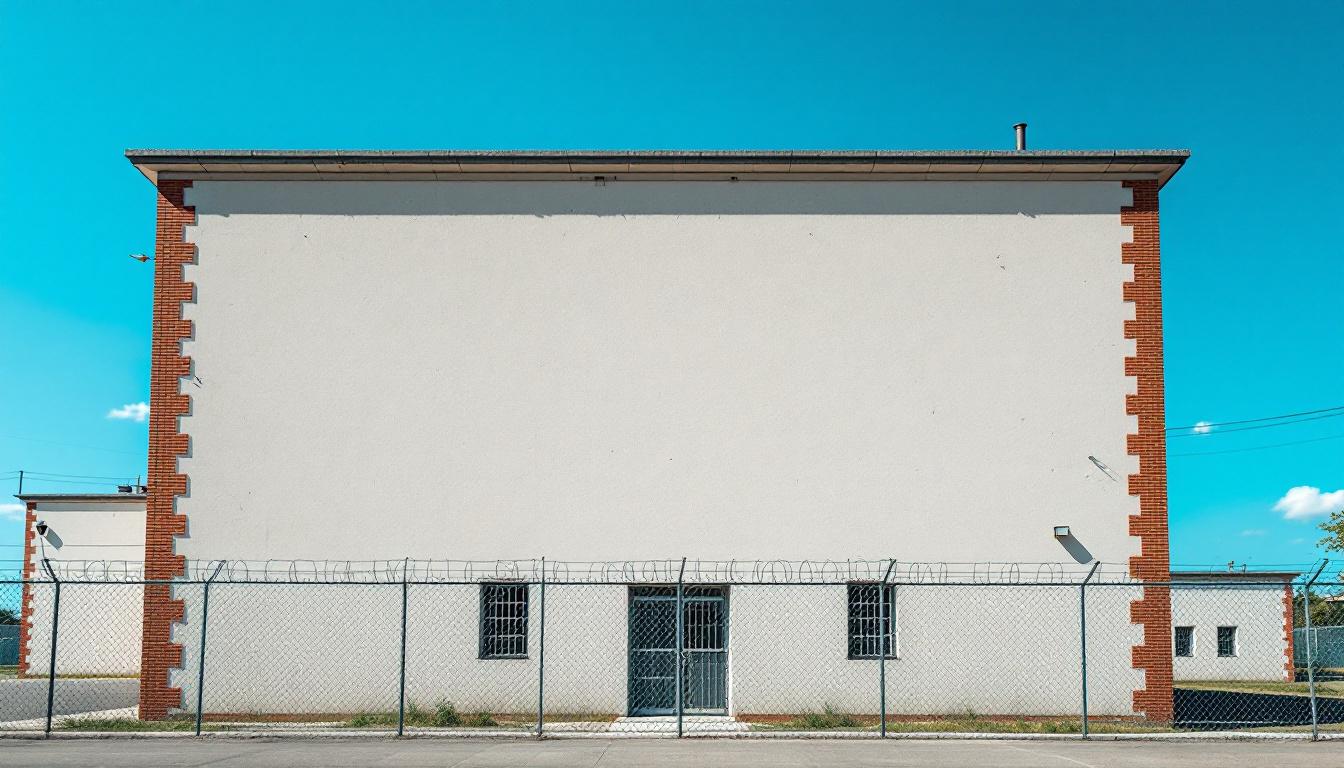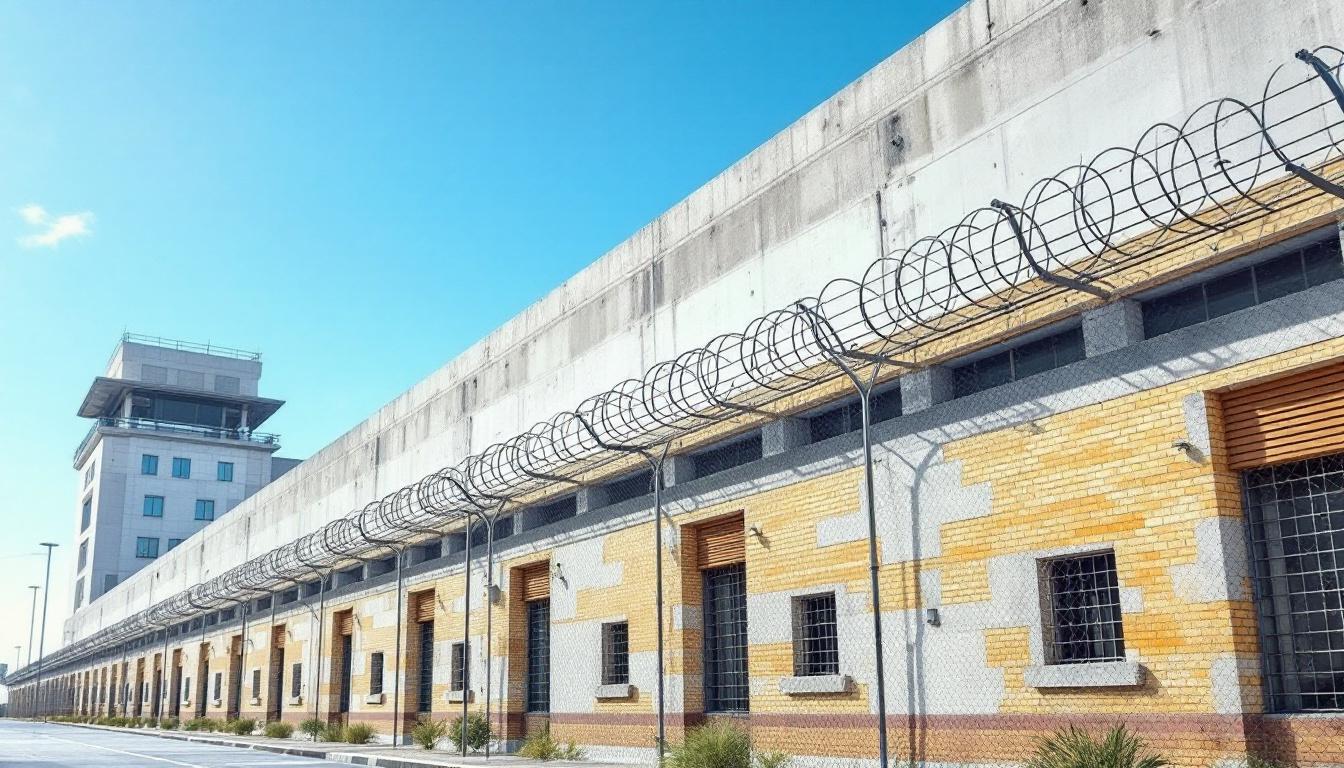
Quick Navigation
How to contact an inmate at Carter County Sheriff's Office
This comprehensive guide will walk you through how to connect with an inmate at Carter County Sheriff's Office. Follow the steps below to find an inmate and send letters and photos:
- Search for the inmate using our search tool below
- Create your account or log in to Penmate
- Write your message (up to 6,000 characters)
- Send instantly - inmates receive printed copies daily
Find an Inmate
Search for an inmate to start communicating today
Tip: You can search by first name, last name, or inmate ID number
To contact a person at Carter County Sheriff's Office start by searching for the person on the official facility website. Perform a search by following these steps:
- Step 1: Enter their first name and last name into the search form and click "Search"
- Step 2: Locate their inmate record
- Step 3: Write down their Inmate ID and any housing information provided
Important! Be sure to enter the person's full name. Nicknames should not be used.
How to Send Messages to Inmates

You can use your phone or computer to send emails, letters, and photos to an inmate. Messages are sent electronically to inmate tablets or kiosks at the facility. If you would like to send a message, start by searching for an inmate at Carter County Sheriff's Office.
Sending Photos and Postcards

A great way to send love and support to a loved one at Carter County Sheriff's Office is to send photos and postcards. It only takes a few minutes to send photos from your phone and it makes a huge difference. You can also mail postcards with words of support and inspiration, or design your own postcard for special moments like birthdays and holidays.
Important! Be sure not to send any explicit photos or they may not be approved by the facility. You can also use a photo printing app like Penmate to make sure your photos are printed at the correct size (4x6 or 3x5) and are mailed according to the rules and regulations of Carter County Sheriff's Office.
Frequently asked questions about Carter County Sheriff's Office
-
How long does it take to deliver a message?
If you're sending an email message your letter is usually delivered within 24-48 hours. For messages sent via mail you should expect delivery within 3-7 days. All messages will need be approved by Carter County Sheriff's Office.
-
How much does it cost to send a message to Carter County Sheriff's Office?
You can send a message free using your phone or mail a message via USPS for the price of a $0.60 stamp and envelope. You can also purchase credits or e-stamps from services starting at $1.99.
-
What services can I use to contact an inmate at Carter County Sheriff's Office?
Penmate
You can use Penmate to send letters and photos to an inmate from your phone. It's an easy way to stay in touch during your loved one's incarceration. Use the inmate locator to find an inmate's location and contact information, then you can send messages within a few minutes.
Securus messaging
Securus may be another option for communicating with an inmate at Carter County Sheriff's Office. You can create a friends and family account and purchase credits to send messages. All messages will be reviewed and must be approved by the facility.
JPay
Some county jails and state prisons may support sending messages with JPay. You must register an account with the system, find your loved one, and purchase stamps to send messages. For some locations you can also attach photos.
Smart Jail Mail
You may also check if Smart Jail Mail is available at Carter County Sheriff's Office. Smart Jail Mail is operated by Smart Communications and has contracted with some state and county jails. After purchasing credits, your messages and photos are sent to the facility, printed out, and then handed out to your loved one.
-
What is the mailing address of Carter County Sheriff's Office?
Mailing address:
Carter County Sheriff's Office
900 E Elk Ave
Elizabethton, TN 37643
Phone: (423) 542-1845Business hours:
- Monday: Open 24 hours
- Tuesday: Open 24 hours
- Wednesday: Open 24 hours
- Thursday: Open 24 hours
- Friday: Open 24 hours
- Saturday: Open 24 hours
- Sunday: Open 24 hours
-
What are the visiting hours at Carter County Sheriff's Office?
Visiting hours at Carter County Sheriff's Office vary by housing unit and security level. Generally, visits are scheduled on weekends and holidays, with some facilities offering weekday visits. Contact the facility directly at (423) 542-1845 or check their website for the current visiting schedule. Visits typically last 30-60 minutes and must be scheduled in advance.
-
What items are prohibited when sending mail to Carter County Sheriff's Office?
Prohibited items typically include: cash, personal checks, stamps, stickers, glitter, glue, tape, staples, paperclips, polaroid photos, musical or blank greeting cards, hardcover books, magazines with staples, and any items containing metal or electronics. Only send letters on plain white paper with blue or black ink. Photos must be printed on regular photo paper (no Polaroids). Always check with Carter County Sheriff's Office for their specific mail policies.
-
How do I send money to an inmate at Carter County Sheriff's Office?
You can send money to an inmate at Carter County Sheriff's Office through several methods: 1) Online using JPay, Access Corrections, or the facility's approved vendor, 2) Money orders mailed directly to the facility with the inmate's name and ID number, 3) Kiosks located in the facility lobby, or 4) Over the phone using a credit or debit card. Fees vary by method, typically ranging from $2.95 to $11.95 per transaction.
-
Can I schedule a video visit with an inmate at Carter County Sheriff's Office?
Many facilities now offer video visitation as an alternative to in-person visits. At Carter County Sheriff's Office, video visits may be available through services like Penmate, Securus Video Connect, GTL, or ICSolutions. Video visits typically cost $10-20 for 20-30 minutes and must be scheduled in advance. You'll need a computer or smartphone with a camera and reliable internet connection. Contact the facility for their specific video visitation policies and approved vendors.
-
What identification do I need to visit an inmate at Carter County Sheriff's Office?
All visitors must present valid government-issued photo identification such as a driver's license, state ID, passport, or military ID. Minors must be accompanied by a parent or legal guardian who can provide the minor's birth certificate. Some facilities require visitors to be on the inmate's approved visitation list, which may require a background check. Contact Carter County Sheriff's Office for specific ID requirements and visitor approval procedures.
-
How can I find out an inmate's release date?
To find an inmate's release date at Carter County Sheriff's Office, you can: 1) Use the online inmate search tool if available, 2) Call the facility's records department, 3) Contact the inmate's case manager or counselor, or 4) Have the inmate provide this information during a call or visit. For privacy reasons, some facilities only release this information to immediate family members.
Facility Overview
Contact Information
Carter County Sheriff's Office900 E Elk Ave
Elizabethton, TN 37643
Phone: (423) 542-1845
Official Website

About Carter County Sheriff's Office
Comprehensive rehabilitation programming and community-centered support services form the cornerstone of operations at Carter County Jail, OK, where individuals receive access to educational opportunities, substance abuse counseling, and vocational training designed to facilitate successful reintegration into society. Located in Heighland Heights, TN, this correctional facility maintains strong collaborative relationships with local organizations and service providers to ensure continuity of care extends beyond incarceration periods.
The facility's operational philosophy emphasizes therapeutic intervention and skill development, typically offering programming that addresses underlying factors contributing to criminal behavior while preparing individuals for productive community participation. Through partnerships with area healthcare providers, educational institutions, and faith-based organizations, the TN correctional facility may provide mental health services, literacy programs, and spiritual guidance tailored to individual needs. These collaborative efforts often include pre-release planning that connects individuals with housing assistance, employment resources, and ongoing support networks throughout the Heighland Heights region.
Within Tennessee's broader correctional framework, this county jail serves as both a detention center for pre-trial individuals and a sentencing facility for those serving shorter-term commitments, generally maintaining security protocols that balance public safety requirements with rehabilitation-focused programming. The facility's commitment to community partnership extends to family support services and victim advocacy programs, recognizing that successful reentry outcomes depend on comprehensive approaches that address the needs of all stakeholders affected by crime and incarceration.
Programs & Services
The breadth of developmental opportunities within Carter County Jail reflects a comprehensive approach to individual growth and community preparation. Rather than viewing incarceration solely through a punitive lens, the facility typically emphasizes rehabilitation through diverse programming that addresses educational deficits, vocational skill gaps, and personal development needs. This multifaceted philosophy recognizes that meaningful change often emerges through structured learning experiences and purposeful engagement with supportive services.
Educational advancement forms a cornerstone of the facility's comprehensive offerings, with services that may include GED preparation for individuals seeking to complete their high school equivalency. These academic opportunities often provide structured learning environments where participants can address educational gaps while developing critical thinking skills essential for successful community reintegration. Furthermore, vocational programs typically complement traditional educational services by offering hands-on training in practical fields such as food service operations and electrical work, providing individuals with marketable skills that enhance employment prospects upon release.
Support services extend beyond academic and vocational training to encompass faith-based programs that address spiritual development and personal reflection. These opportunities often create spaces for individuals to explore personal values, develop coping strategies, and build supportive community connections. The integration of various program types—from technical skill development to spiritual guidance—typically reflects the facility's understanding that successful rehabilitation requires addressing multiple dimensions of human experience, creating pathways for individuals to develop both practical competencies and personal resilience necessary for positive life changes.
Daily Life & Visitation
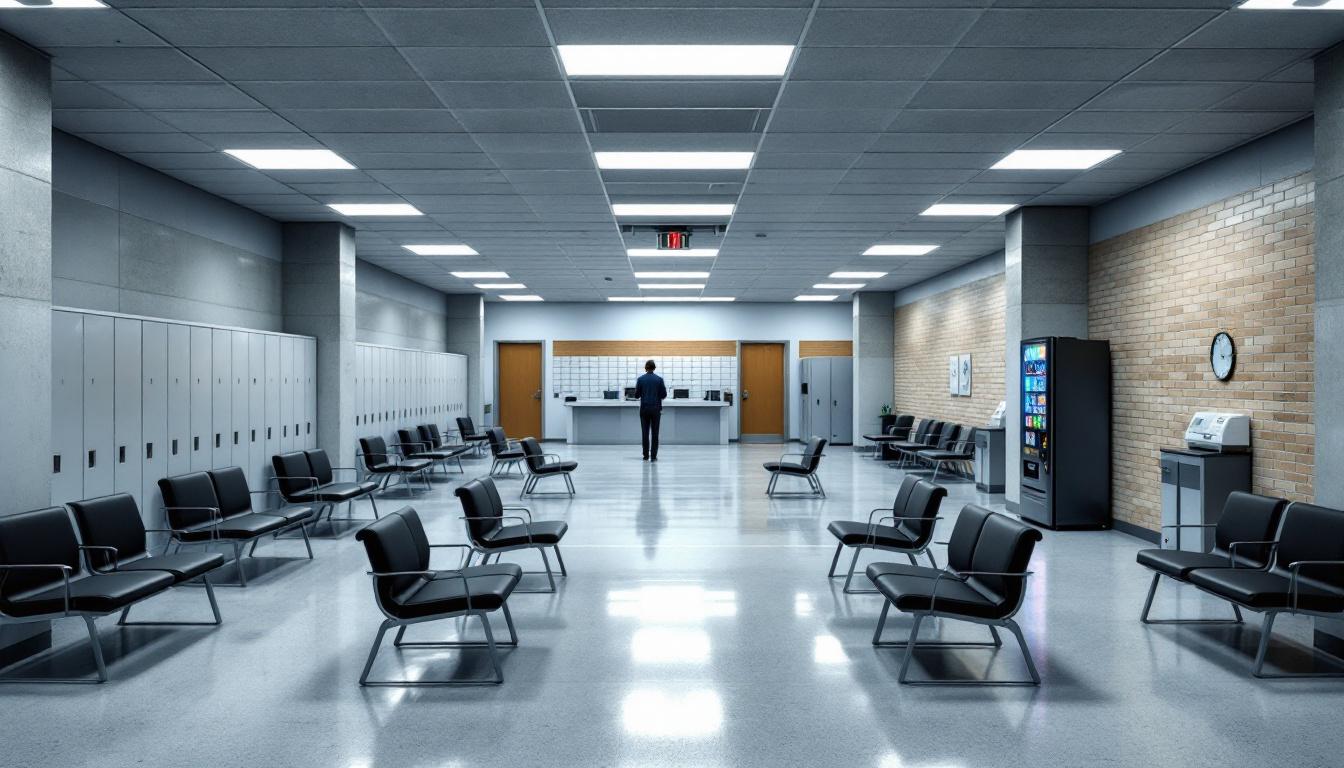
The sound of morning announcements typically breaks the quiet of early dawn, signaling the beginning of another structured day for individuals housed within the facility's secure environment. Daily routines currently follow a regimented schedule that continues to provide predictability and order, with individuals generally awakening for morning counts before proceeding to assigned responsibilities or programming activities. Meal times typically anchor the day's progression, offering opportunities for social interaction within the dining areas while maintaining necessary security protocols throughout the facility.
Living accommodations generally consist of shared housing units where individuals typically reside in dormitory-style settings or smaller rooms, depending on classification levels and available space within the facility. Furthermore, personal belongings are usually limited to approved items that may include basic hygiene products, limited clothing, and correspondence materials, with additional items often available through the commissary system. Although space may be restricted, individuals typically have access to common areas where they can engage in conversation, watch television programming, or participate in recreational activities during designated periods.
Structured programming schedules often include work assignments that may involve kitchen duties, facility maintenance, or laundry services, providing individuals with opportunities to develop skills while contributing to daily operations. Although recreational opportunities typically include access to exercise areas and organized activities, visitation policies generally allow family members and approved contacts to maintain connections through scheduled visits and telephone communications. Furthermore, educational programming and counseling services may offer additional structure to daily routines, helping individuals prepare for eventual reintegration while maintaining important family and community support systems throughout their time at the facility.
Ready to Connect?
Start communicating with your loved one today
Search for an Inmate
